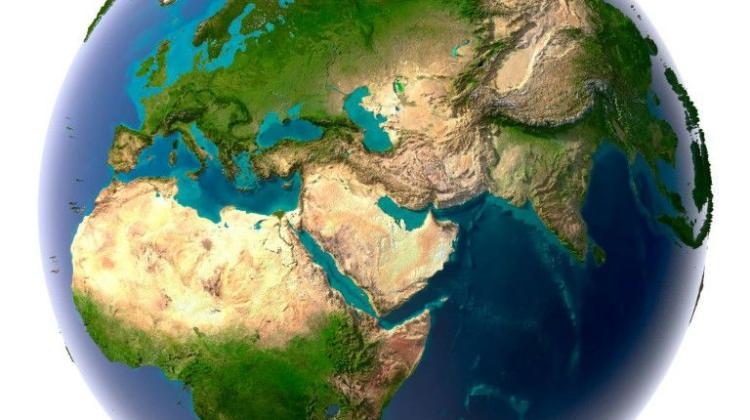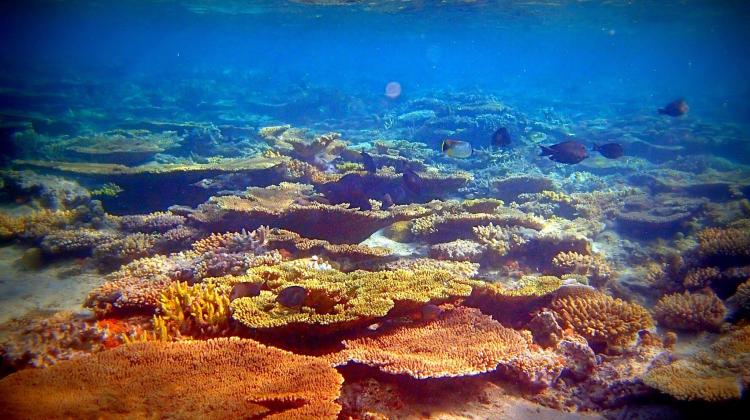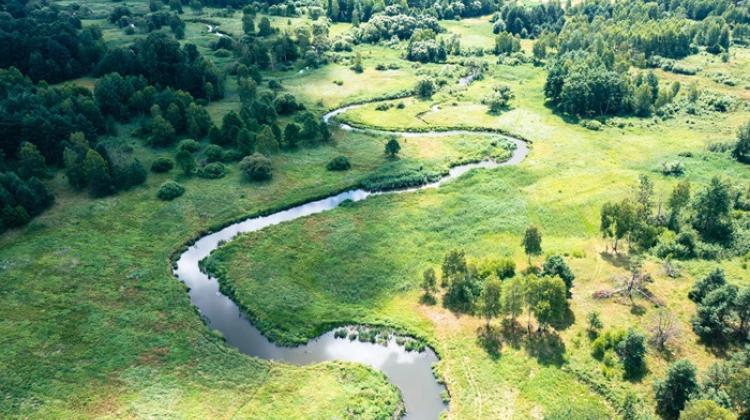Climatologist: Water will run out, even if the warming slows down

Even if we manage to reduce greenhouse gas emissions and slow the warming, almost half a billion people on Earth will still experience a serious shortage of fresh water, according to new analysis presented in "Environmental Research Letters".
Scientists do not have any doubts that greenhouse gases emitted by human affect the Earth\'s surface temperature increase. Since 1901, the average global temperature has risen by about 0.89 degrees Celsius. The sea level has been rising (by more than 20 cm since 1870), and continues to rise. Ocean and mountain glaciers melt, ice cover in the Northern Hemisphere is shrinking. According to experts, the effects will be felt in many parts of the Earth.
For these changes to slow down, countries, as per of the UN Climate Convention, seek to reduce greenhouse gas emissions in order to prevent global temperatures from rising by more than 2 degrees Celsius above pre-industrial average by the end of the twenty-first century.
"Warming by less than 2 degrees by the end of the century, however, remains a dream. All indications are that the temperature will rises more. Especially since so far no action to reduce emissions of greenhouse gases has proven effective. Chances are that during the life of future generations, the temperature will rise even more" - confirmed in an interview with PAP one of the authors of the paper, Prof. Zbigniew W. Kundzewicz from the Institute of Environmental and Forest Sciences PAS in Poznań and the Potsdam Institute for Climate Impact Research in Germany.
The new research of an international team of scientists from Germany, the UK, Poland and Kenya suggests, however, that even with such a 2 degree increase in temperature, almost half a billion people on Earth (8 percent of the population) will still experience serious shortage of water. For some, it will be a new problem and for others, especially in the Middle East - a familiar one, but more intense than ever. The higher the warming will get, the more people will be affected by the problem of water scarcity.
"In general, we can say that expected climate change will intensify the phenomena observed today. Dry areas will be even more dry, humid ones will get even more humid - said the professor. - For Australia and South Africa, climate change models predict a significant dryness. In contrast, in the south Asia, where annual precipitation will increase, the dry season will be even more dry, but in the rain season precipitation will be more intense. This is not good news. In those countries, the excess water , if not correctly +distributed+ over time, is not a blessing. It is clear on the example of Bangladesh, where over the past 20 years during floods the river water several times flooded more than 60 percent of the country area".
The prospects are not bright the for the countries on the Mediterranean, which, according to Prof. Kundzewicz, will lose twice as much. It will get warmer, so more water will evaporate, and there will be less rain. Reduced water flow in the rivers is bad news for agriculture.
Models for Poland show a certain warming, but they are not clear in terms of rain. In the winter it will be more humid, often due to rain, not snow. In the summer, we may face the same situation as the countries of southern Europe. Not only will it be warmer, there will also be less rain. And the precipitation will be less favourably distributed, which means long periods of drought and short episodes of heavy rainfall. "In practice, we may expect heavy rainfall from time to time, which will not do us any good, because the water will quickly flow into rivers and may cause flood damage. Regular rainfall, such as frequent drizzle would much better" - described the professor.
"Even if the increase in global warming does not exceed 2 °C, many regions will have to adjust their water management policy and water demand. Especially that the population of these regions is expected to grow" - emphasised the lead author of the study, Dr. Dieter Gerten of the Potsdam Institute for Climate Impact Research.
Authors also assessed the impact of future climate change on land ecosystems. They wanted to see where on Earth they will change the most, and how climate change will affect the regions extremely rich in species or which are a mainstay of species in many respects unique.
"The global warming of 2 °C can lead to significant changes in ecosystems, especially in the tundra and some semi-arid regions. If the warming exceeds 3 °C, areas that undergo express ecosystem transformations may become much larger, and their boundaries will move towards those parts of the Earth that are known for species richness" - explained Gerten. According to the authors, an average global warming above 4 °C is likely to heavily affect areas famous for biodiversity, for example part of the Amazon.
PAP - Science and Scholarship in Poland
zan/ agt/ mrt/
tr. RL
Przed dodaniem komentarza prosimy o zapoznanie z Regulaminem forum serwisu Nauka w Polsce.


















